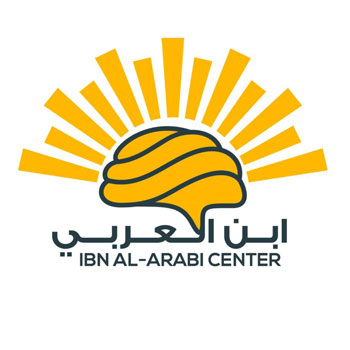The Extent to Which the GLOBE Program Achieves Sustainable Development Goals and Promotes Environmental Citizenship Among Omani Students
DOI:
https://doi.org/10.56989/benkj.v5i4.1415Keywords:
Environmental Citizenship, Sustainable Development Goals (SDGs), GLOBE Program, Environmental Education, Sustainable EducationAbstract
Environmental education is a crucial tool for addressing global challenges such as climate change and sustainability. This study examines the extent to which the GLOBE Program contributes to achieving the Sustainable Development Goals (SDGs) and promoting environmental citizenship among Omani students. The research problem lies in assessing the program’s impact on students' environmental behaviors and beliefs, as well as teachers' perspectives on its effectiveness in achieving SDGs related to education and environmental awareness.
The study employs a descriptive methodology, utilizing a sample of 400 students,200 participants in the GLOBE Program, and 200 non-participants, from 44 Omani schools during the 2024/2025 academic year. Two primary tools were used: a questionnaire measuring students’ environmental citizenship and a survey evaluating teachers’ assessments of the program’s role in achieving SDGs.
The results indicate that the GLOBE Program significantly enhances environmental citizenship among participating students, with all measured domains—knowledge, behavior, feelings, and beliefs—achieved at high or very high levels. Statistically significant differences were found between participants and non-participants, favoring the former. Gender-based differences revealed that female students demonstrated stronger environmental beliefs and emotional engagement than their male counterparts. Teachers rated the program as highly effective in achieving SDG-related objectives, particularly in education and climate action.
The study recommends enhancing the program by integrating more hands-on activities to strengthen students' environmental knowledge and behavior. It also suggests leveraging students' strong environmental beliefs to promote leadership in sustainability initiatives. Expanding the program to more schools and age groups is proposed to maximize its impact on ecological citizenship and to create an education system and tools aimed at achieving the SDGs.
Metrics
References
Al-Hadeede, H. K., & Ambusaidi, A. K. (2020). The reality of applying the GLOBE environmental program in the Sultanate of Oman from the perspective of students and teachers. Journal of Al-Quds Open University for Educational & Psychological Research & Studies, 11(34), 1–20. https://journals.qou.edu/index.php/nafsia/article/view/2512
Al Qalhati, M. A. H., Shahat, M. A., & Ambusaidi, A. K. (2023). The extent to which the dimensions of scientific literacy are included in the projects participating in the GLOBE environmental program in the Sultanate of Oman. Journal of Educational Sciences, 23, 161–181. https://doi.org/10.29117/jes.2023.0143
Al-Rabaani, & Al-Shuili. Environmental knowledge, attitudes, and behavior among Omani post-basic education students. European Journal of Social Sciences, 60(1), 23–38. https://www.europeanjournalofsocialsciences.com/issues/PDF/EJSS_60_1_03.pdf
Ardoin, N. M., Bowers, A. W., & Roth, N. W. (2018). Environmental education and K–12 student outcomes: A review and analysis of research. The Journal of Environmental Education, 49(1), 1–17. https://doi.org/10.1080/00958964.2017.1366155
Baek, C., Saito-Stehberger, D., Jacob, S., Nam, A., & Warschauer, M. (2023). Computer science framework to teach community-based environmental literacy and data literacy to diverse students. arXiv preprint arXiv:2309.14098. https://arxiv.org/abs/2309.14098
Cao, B. (2018). Defining environmental citizenship. European Network for Environmental Citizenship (ENEC). https://enec-cost.eu/wp-content/uploads/2018/06/Keynote-Presentation-by-Dr-Benito-Cao-The-University-of-Adelaide-Australia-Defining-Environmental-Citizenship.pdf
Dobson, A., & Bell, D. (Eds.). (2006). Environmental citizenship. MIT Press.
Dobson, A. (2007). Environmental citizenship: Towards sustainable development. Sustainable Development, 15(5), 276–285.
Hadjichambis, A. C., & Paraskeva-Hadjichambi, D. (2022). Conceptualizing environmental citizenship for 21st-century education: Theoretical foundations and practical applications. Springer. https://doi.org/10.1007/978-3-030-84204-3
Hadjichambis, A. C., & Reis, P. (2020). Conceptualizing environmental citizenship for 21st-century education. Springer.
Harvard University. (2025). The GLOBE Program: Environmental science education. Retrieved from https://repository.gheli.harvard.edu/repository/13527
GLOBE Program. (n.d.). GLOBE teacher's guide. Retrieved from https://www.globe.gov/do-globe/globe-protocol
GLOBE Program. (2022). The GLOBE Program presents science summit at the United Nations General Assembly (UNGA77). Retrieved from https://www.globe.gov/news-events/globe-news/-/newsdetail/10157/the-globe-program-to-present-at-science-summit-at-the-united-nations-general-assembly-unga77-on-15-september?utm_source=chatgpt.com
GLOBE Program. (2019). United Nations Environment Programme. Retrieved from https://www.globe.gov/web/unitednations/unitednations/united-nations-environment-program-unep-
Oman Observer. (2021, March 22). Omani students shine at global science exhibitions. Oman Observer. https://www.omanobserver.om
Office of Science and Technology Policy. (2010). A review of Global Learning & Observations to Benefit the Environment (GLOBE). Retrieved from https://files.eric.ed.gov/fulltext/ED527259.pdf
Salame, R., Sabi, S., & Hamid, A. (2020). A study of the GLOBE Program and its impact on public school teachers and their students. Journal of Academic Perspectives. https://www.journalofacademicperspectives.com/app/download/969924744/Salame_Sabi_and_Hamid.pdf
Skinner, E., & Chi, U. (2012). Intrinsic motivation and engagement as “active ingredients” in garden-based education: Examining models and measures derived from self-determination theory. The Journal of Environmental Education, 43(1), 16–36. https://doi.org/10.1080/00958964.2011.596856
UNESCO. (2017). Education for sustainable development goals: Learning objectives. Paris: UNESCO. Retrieved from https://unesdoc.unesco.org
United Nations. (n.d.). Goal 4: Quality education. The Global Goals. Retrieved from https://globalgoals.org/goals/4-quality-education
United Nations. (2015). The Sustainable Development Goals. Retrieved from https://sdgs.un.org/goals
Wyles, K. J., Pahl, S., Holland, M., & Thompson, R. C. (2017). Can beach cleaners do more than clean-up litter? Comparing beach cleans to other coastal activities. Environment and Behavior, 49(5), 509–535. https://doi.org/10.1177/0013916516649412
Downloads
Published
How to Cite
Issue
Section
License
Copyright (c) 2025 Ibn Khaldoun Journal for Studies and Researches

This work is licensed under a Creative Commons Attribution-NonCommercial 4.0 International License.































 ElDjawda Soft
ElDjawda Soft